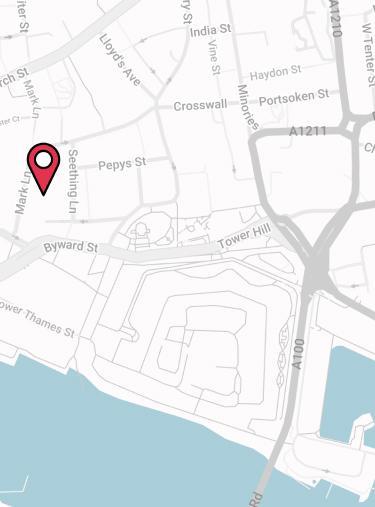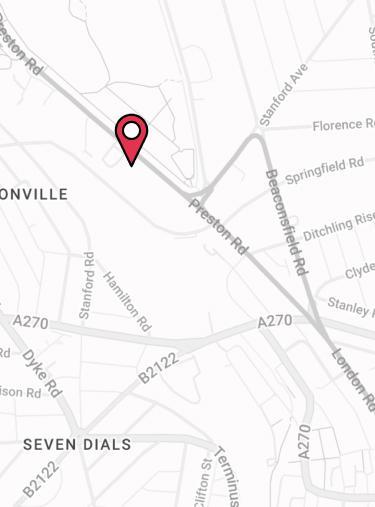
Income Protection vs Payment Protection Insurance
Obtaining adequate protection insurance is an important part of preserving your lifestyle and preparing against misfortune. The right or the wrong kind of insurance cover can make a significant difference in a time of need.
Traditional Income Protection and Payment Protection Insurance (PPI) are often confused – they may sound similar, but there are a lot of noteworthy differences between the two.
- Payment Protection Insurance
PPI is used to cover your outgoings, typically expenditure on a loan. - Income Protection Insurance
Income Protection is designed to protect your wider income. This can include expenditure on loans but also wider costs, such as a mortgage, rent, bills and lifestyle costs.
If you’re weighing up Payment Protection Insurance and Income Protection, give us a call. Our advice is free, and it won’t cost you a penny to set up your policy through us if you decide to go ahead. Call 02084327333 or email help@drewberry.co.uk to find out your options.
What’s the Difference Between Income Protection and Payment Protection?
There are multiple differences between Income Protection and Payment Protection, notably surrounding:
- The length of cover
- How comprehensive the cover is
- How much you can insure yourself for
- Coverage of medical conditions and exclusions
- Type of premiums
- Cost of cover
- Transparency with claims data.
Income Protection Overview
Most Income Protection policies can protect up to 70% of your income if you can’t work due to accident or sickness (and potentially redundancy depending on your policy)
- Long Term Protection
Can pay out a claim right up until you retire if you are too ill or injured to return to work - “Own Occupation” Cover
Pays a claim if you are unable to do your current job due to illness or injury - Optional Guaranteed Premiums
Fix the cost of the cover for the entire length of the policy - Full Medical Underwriting
Completion of full health questionnaire at application stage so you know exactly what you are covered for from the outset.
Payment Protection Overview
Payment Protection cover tends to be aligned with an outstanding loan or mortgage, so the amount you can insure yourself for is linked to the size of your monthly loan repayments
- Short Term Protection
Pays a claim for a maximum of 12 or 24 months regardless of whether or not you are able to return to work - Suited Occupation Cover
Pays a claim if you are unable to do your current job or any other role you may be able to undertake given your skills and experience - Reviewable Premiums
The cost of the cover is reviewed annually tending to rise year on year - Moratorium Underwriting
You agree that any conditions suffered in the previous two years will not be covered, should you suffer an illness or injury your medical history is then considered when making a claim.
Do I Need Payment Protection or Accident and Sickness Insurance?
Income Protection | Payment Protection | How long will the policy cover me for? |
|---|---|
Although short-term cover is available, Income Protection allows you to choose long-term protection, which means the policy will pay out right up until the policy cease age (usually your retirement age). | Payment Protection Insurance will only ever offer short-term, temporary cover for your mortgage payments for a maximum of 12 months, although some that pay out for 24 months are available. | Will I be covered if I can’t do my job? |
Own Occupation insurance is the most comprehensive cover, protecting you in the event of you being unable to do your specific job. Less specific definitions of incapacity, such as “suited occupation”, may only pay out if you can’t do another job suited to your experience and education. | PPI plans usually only provide suited occupation cover, so the insurer is entitled to ask you to do another job given your skillset before permitting a claim. Some PPI policies even offer any occupation cover, where the insurer is entitled to check your ability to do any job before allowing a claim. | How much can I insure myself for? |
Usually between 50% and 65% of your gross monthly earnings as an individual, or up to 80% with Income Protection for Directors. | The amount of cover is linked to the monthly payments you make on a loan/mortgage, so usually much less than Income Protection. | What medical conditions are covered? |
Full medical underwriting means your whole medical history is considered from the start, so you know what’s covered from the outset. Policies may even cover time off work due to certain medical conditions after a period without symptoms. | Usually has a long list of standard medical exclusions. There’s no upfront underwriting, so you may not be fully aware of what exactly you’re covered for. It’s unlikely any condition you’ve suffered in the past will ever be covered. | Which type of premiums are used? |
Many people have the option to choose guaranteed premiums, which means your premiums will remain fixed for the life of your policy, regardless of you getting older or making any claims. | Often has reviewable premiums, which means the price of cover can go up year-on-year. Premiums may be increased due to issues such as economic turbulence or a spike in claims. | How much does it cost? |
Cost will vary depending on a number of metrics (more on this can be found here), such as your age, medical history, the amount of cover you require and the type of premium you choose. | In the absence of medical underwriting or much of an ability to adjust the level of cover, the main factor affecting the cost of PPI is what you’re insured for, which is linked to your loan. | Will the insurer pay my claim? |
Insurers regularly publish their claims data for Income Protection – check out the most recent claims statistics. | Providers rarely publish claims data, making it hard to tell which PPI provider is best at paying claims. Note that as PPI often uses a lesser definition of incapacity, it’s sometimes harder to claim on PPI policies than on own occupation Income Protection. |
What’s Best: Income Protection or Payment Protection?
What’s “best” for you will entirely depend on your circumstances. But broadly speaking, if affordability is not an issue then every working adult should consider traditional long-term Income Protection which would pay a claim should they be unable to do their own occupation due to any illness or injury.
If you’re weighing up Payment Protection Insurance and Income Protection, give us a call. Our advice is free, and it won’t cost you a penny to set up your policy through us if you decide to go ahead. Call 02084327333 or email help@drewberry.co.uk to find out your options.
The Cost of Income Protection vs Payment Protection
Income Protection is a broader, more comprehensive cover than PPI in many cases. Income Protection covers you for longer and for a larger amounts, as well as taking your medical history into account.
With Income Protection, there’s also the option for guaranteed premiums, where you lock in the cost of cover over the life of the policy from the start.
Payment Protection Insurance offers shorter-term cover where the maximum payout will often be limited to either 12 or 24 months depending on the terms of your policy.
No medical history will be taken with PPI when you set-up your cover which means a pre-existing medical condition that stops you being able to make your loan repayments may be excluded without you being clear on this until you come to make a claim. Most Payment Protection policies exclude any illness which you have suffered in the 2 years prior to taking out cover.
Can You Get Unemployment Insurance with Income Protection or PPI?
Many people looking for unemployment cover find that it can be included in a PPI policy and feel it’s just easier to take out one policy covering all three risks. However, with some Income Protection policies it is possible to add redundancy cover as a bolt on to the accident and sickness cover.
We often couple 12 months of unemployment cover with a traditional long term income protection policy so our clients have the best of both worlds. Our advisers can discuss your needs with you and find you the right type of cover for your circumstances to make sure you’ve got the right insurance in place.
What If You’re Self-Employed?
Income Protection for the self-employed is no issue when looking to cover accident and sickness, but always be careful if deciding to add unemployment cover to your policy. That’s because when you work for yourself you’re technically your own boss.
As such, it’s very hard to prove that you’re out of work through no fault of your own and had no knowledge about the chain of events leading to the claim.
Get Specialist Income Protection Advice
While Income Protection provides more comprehensive cover, there’s no guarantee that it’s right for everyone. If you’re not looking to protect your income and are only worried about loan repayments, then a full Income Protection plan may not be suitable. It all depends on your individual circumstances, which is why it’s best to get independent advice.
If you’re deciding whether to take out Payment Protection Insurance or Income Protection then call 02084327333 or email help@drewberry.co.uk to find out your options. Our advisers are on hand to provide fee-free advice and find the most suitable policy for your needs.
Why Speak to Us?
When it comes to protecting yourself and your finances, you deserve first-class service. Here’s why you should talk to us:
- There’s no fee for our service
- We’re an award-winning independent insurance broker, working with the leading UK insurers
- You’ll speak to a dedicated specialist from start to finish
- 4100 and growing independent client reviews rating us at 4.92 / 5
- Claims support when you need it most
- We’re authorised and regulated by the Financial Conduct Authority. Find us on the financial services register.
- Topics
- Income Protection
Contact Us
125-135 Preston Road
Brighton
BN1 6AF
Cookies
Drewberry™ uses cookies to offer you the best experience online. By continuing to use our website you agree to the use of cookies including for ad personalization.
If you would like to know more about cookies and how to manage them please view our privacy & cookie policy.








